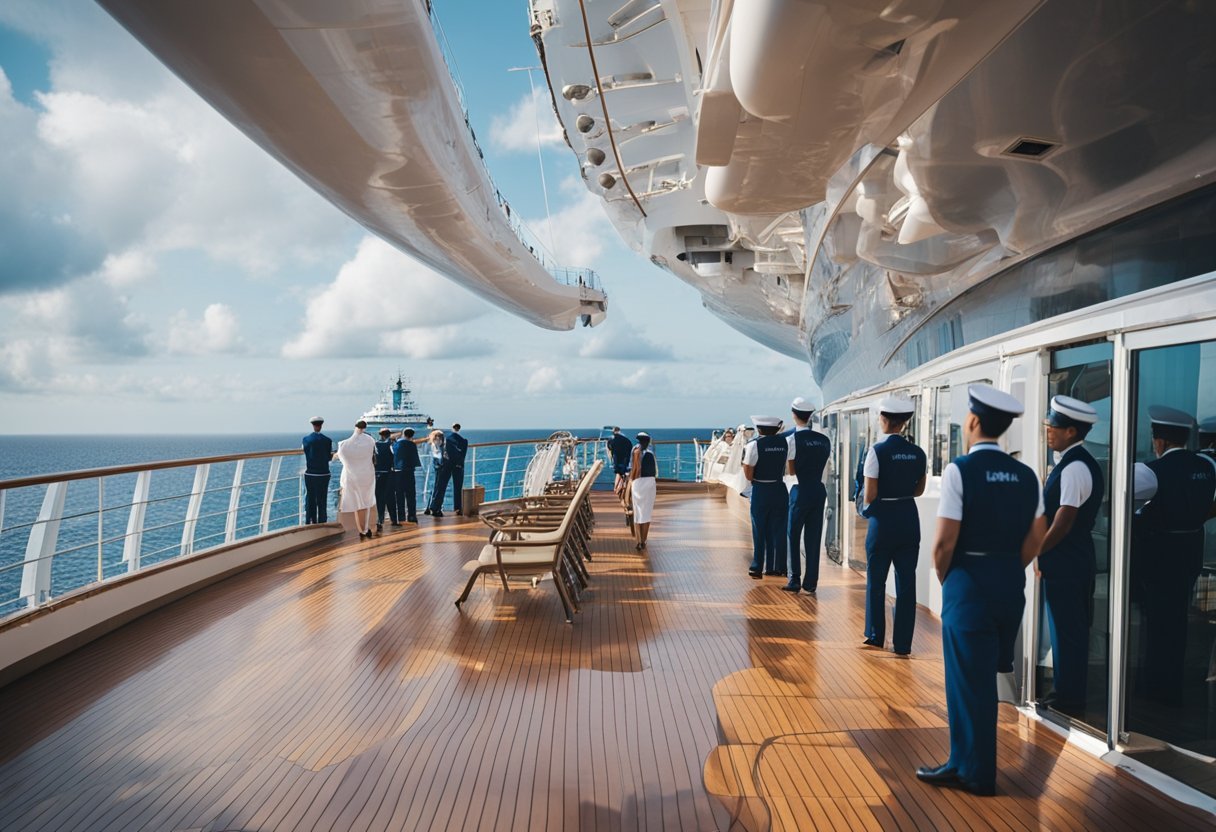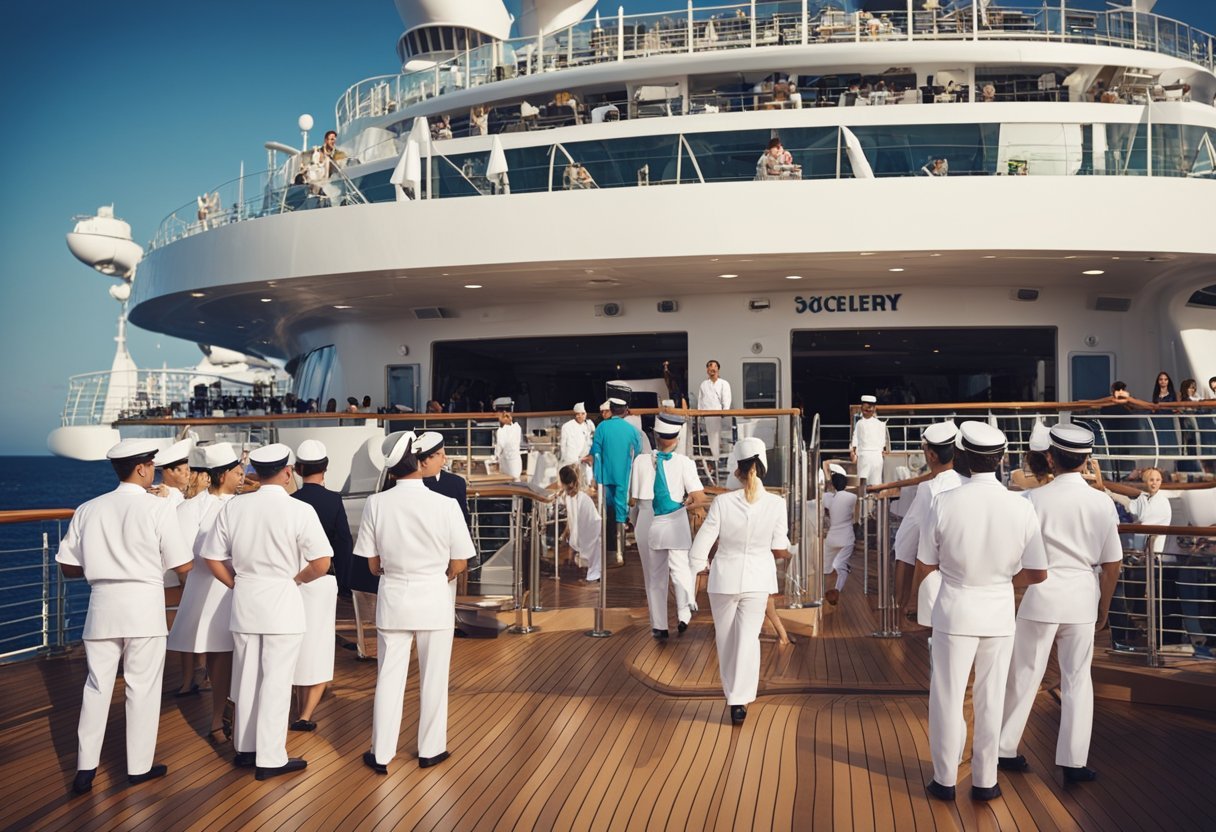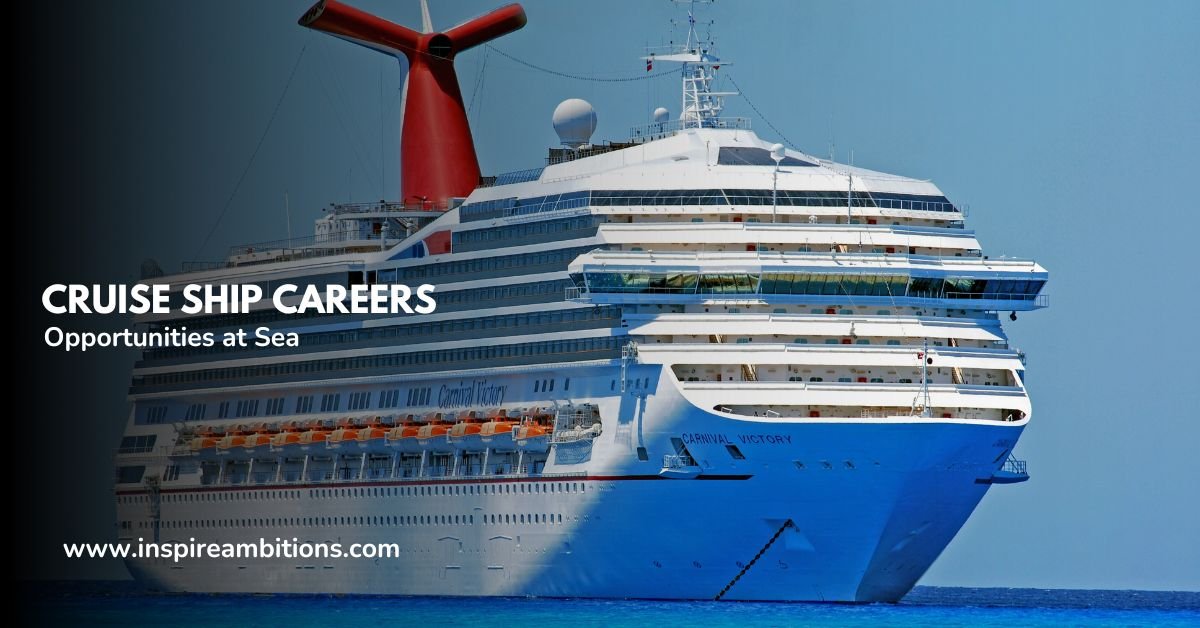Carrières sur les navires de croisière – Votre guide pour saisir les opportunités en mer
Se lancer dans un career in the cruise ship industry can be a transformative experience, offering a mix of travel, adventure, and the chance to meet people from all over the world. The sector provides a broad range of roles suited for individuals with varying skills and interests, from entertainment and hospitality to engineering and navigation.
Working on a cruise ship means being part of a close-knit community at sea, with each member playing a crucial role in creating memorable experiences for passengers.

Life onboard is unique, combining rigorous work schedules with the opportunity to visit exotic locations during off-hours. Cruise lines, such as Princess Cruises and Disney Cruise Line, emphasize the importance of comprehensive training and recruiting passionate individuals who value teamwork and guest services.
La clé pour starting a career at sea is understanding the distinct lifestyle, the importance of safety certifications and job-specific training, and connecting with authorized recruitment partners that offer guidance through the employment process.
Cruise Ship Careers – Key Takeaways
- A cruise ship career offers diverse job opportunities and a dynamic work environment.
- Employees benefit from extensive training and the chance to explore different cultures and destinations.
- Recruitment through legitimate channels is essential for securing a position on a cruise ship.
Exploring Cruise Ship Careers

Whether you’re seeking your first job or looking to change your career path, the cruise industry offers a variety of roles catering to different skill sets and professional aspirations.
Overview of Career Opportunities
You will find an array of career opportunities on a cruise ship that can align with your talents and interests. Hospitality roles, such as stewards or hotel staff, are integral for maintaining high standards of service and cleanliness for guests. If you thrive in an entertainment setting, positions like a Junior Assistant Cruise Director allow you to orchestrate onboard activities and engage directly with passengers.
Here are some common positions you might consider:
- Guest Services: Ensure passengers have a delightful experience by addressing inquiries and providing information.
- Deck and Engineering: Handle the essential operation and maintenance of the vessel.
- Soins de santé: Provide medical services to passengers and crew members.
- Arts culinaires: Prepare a range of dishes and manage kitchen operations.
Pathways to Success
To embark on a successful career at sea, it’s crucial to foster a growth-oriented mindset and acquire the essential skills required by the dynamic environment of a cruise ship. Prominent cruise lines, like Carnival Cruise Line and Princess Cruises, offer extensive training and recreational programmes to cultivate leaders and support employee growth within the company.
To propel your career, consider these steps:
- Recherche: Investigate various cruise lines to find the one that matches your career aspirations.
- Training and Education: Participate in relevant courses or in-house training programmes offered by the cruise lines.
- La mise en réseau: Connect with current employees and industry professionals to gain insights and advice.
- Appliquer: Tailor your application to the specific role and cruise line, highlighting your relevant experience and skills.
Life on a Cruise Ship
Your experience working on a cruise ship will be unique, characterised by a set of daily tasks, nuanced relationship management between crew and guests, and confronting particular challenges that come with a shipboard lifestyle.
Daily Responsibilities
As part of the ship’s crew, your daily tasks vary based on your position but often include maintaining high standards of cleanliness and ensuring compliance with safety regulations. For instance:
- Housekeeping Staff:
- Room preparation: ensuring guest cabins are spotless and well-stocked.
- Area maintenance: cleaning and tidying public areas of the ship.
- Hospitality Roles:
- Meal service: setting up dining areas and serving guests.
- Activities coordination: organising and overseeing recreational events.
Crew and Guest Interaction
Interactions between crew members et guests are central to life aboard a cruise ship with emphasis on service client:
- Professional demeanor: You’re expected to be courteous and attentive at all times.
- Assistance: Providing information and addressing guests’ needs promptly.
Quality of Life and Challenges
Le qualité de vie aboard has its perks but also comes with notable challenges:
- Living arrangements: Crew cabins are shared and space is often limited.
- Work schedule: Long hours are common, with limited time off while at sea.
Working at sea tests your resilience but can also be extremely rewarding as you ensure guests have memorable experiences.
Key Roles and Departments
When you embark on a cruise ship career, you become part of a multifaceted team where each role is pivotal to the vessel’s operation. In this section, you’ll understand the core departments and key positions onboard.
Hotel Operations Staff
Your experience in hotel operations is vital aboard a cruise ship. Roles vary from stewards, who ensure cleanliness and comfort in guest rooms, to customer service representatives dealing with inquiries. A Head Room Steward supervises a team of stewards. Additionally, hotel operations include casino staff et bartenders, enhancing the entertainment and leisure experience for passengers.
Engine and Technical Personnel
Technical proficiency is key in the engine department. Positions range from the Staff Captain, overseeing the overall operation, to specialised engineers maintaining the ship’s mechanical integrity. The Environmental Officer ensures compliance with environmental regulations, and the Security Officer is responsible for the safety of all on board.
Culinary and Food Production Team
The culinary department is a bustling environment where chefs and cooks come together to deliver exceptional dining experiences. Sous Chefs, Chef de Parties, et Commis Chefs form the backbone of this team, often specialising in areas like the cold kitchen. Your culinary skills directly translate to passenger satisfaction.
Divertissements et activités
In the realm of entertainment, your role contributes to the vibrant atmosphere on the cruise. You could be an entertainer captivating audiences, or a Youth Counselor creating engaging programmes for younger passengers. This department is dynamic, always adapting to provide memorable experiences for every guest.
Certification and Training
To embark on a career aboard a cruise ship, you’ll need to undergo specific training and obtain the necessary certifications. This ensures compliance with maritime regulations and prepares you for the responsibilities of your role.
Safety and Compliance Training
As you start your career at sea, the Standards of Training, Certification and Watchkeeping (STCW) form the foundation of your safety and compliance education. This mandatory training covers basic safety procedures, survival techniques, fire prevention and fighting, personal safety, and social responsibilities.
Notably, courses in automated control systems are essential for engineers, as they need to monitor and troubleshoot technology integral to a ship’s operation.
- STCW Basic Safety Training Modules:
- Personal Survival Techniques
- Fire Prevention and Fire Fighting
- Elementary First Aid
- Personal Safety and Social Responsibility
In addition to these, advanced courses in shipboard safety officer training are geared towards those looking to enhance their qualifications in safety management and emergency protocols.
Professional Development and Advancement
Your career growth in the cruise industry can be accelerated by investing in professional development. Culinary roles, for example, benefit from advanced training in culinary arts et presentation, with a focus on achieving high sanitation standards. A well-crafted culinary portfolio showcasing your skills can be crucial in advancing your culinary career onboard.
- Areas for Professional Development:
- Arts culinaires: Advanced courses in international cuisines, baking, and pastries
- Sanitation Standards: Certifications in health and hygiene protocols
- Automation: Training in kitchen automation and control systems
- Presentation: Mastery in the art of food styling and presentation techniques
Investing in your training and certification not only fulfils legal requirements but also equips you with the skills necessary to excel in your role and ensure a productive and safe environment for both crew and passengers.
Recruitment and Employment
When pursuing a career with cruise lines, ensure you’re dealing with legitimate recruitment entities and understand each cruise line’s commitment to equal opportunities.
Beware of Fraudulent Entities
If you’re seeking employment on a cruise ship, be vigilant about fraudulent entities. These illicit entities may pose as legitimate recruitment agencies with fake job offers, typically asking for money or personal information. Protect yourself by verifying all job offers through the cruise line’s official site web. If you suspect fraud, contact the cruise line’s security department ou local police authorities immediately.
Working with Recruitment Partners
Reputable cruise lines, such as those operating from Miami, FL, work with authorised agencies/partners to recruit staff. These recruitment partners are officially recognised and can be trusted to provide genuine job opportunities. To confirm a partner’s legitimacy, check directly with the cruise line’s career page on their official website before engaging with any job offer.
Equal Opportunities Employer
Cruise lines pride themselves on being equal opportunity employers. Employment decisions are based on merit, without regard to race, colour, religion, sex, sexual orientation, national origin, ou disability. Your qualifications and experience are what matter, ensuring a diverse and inclusive workplace that respects and values the unique contributions of all employees.







